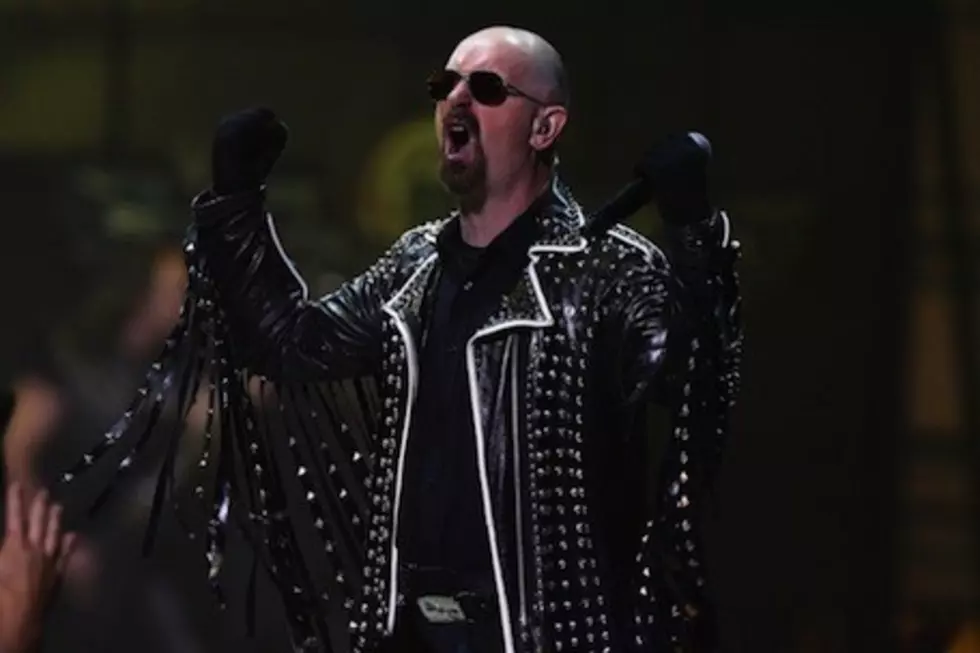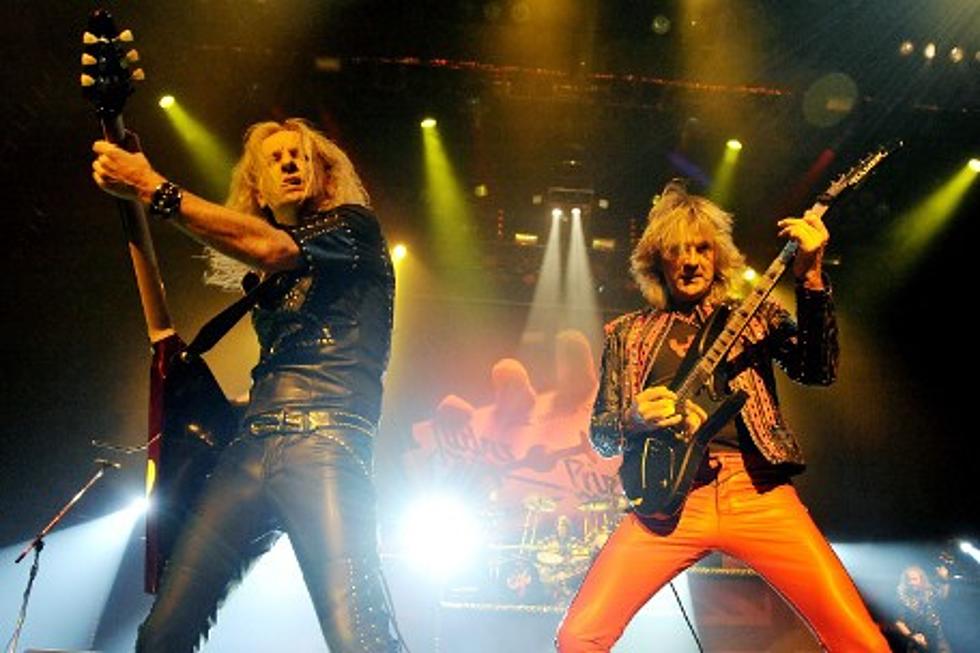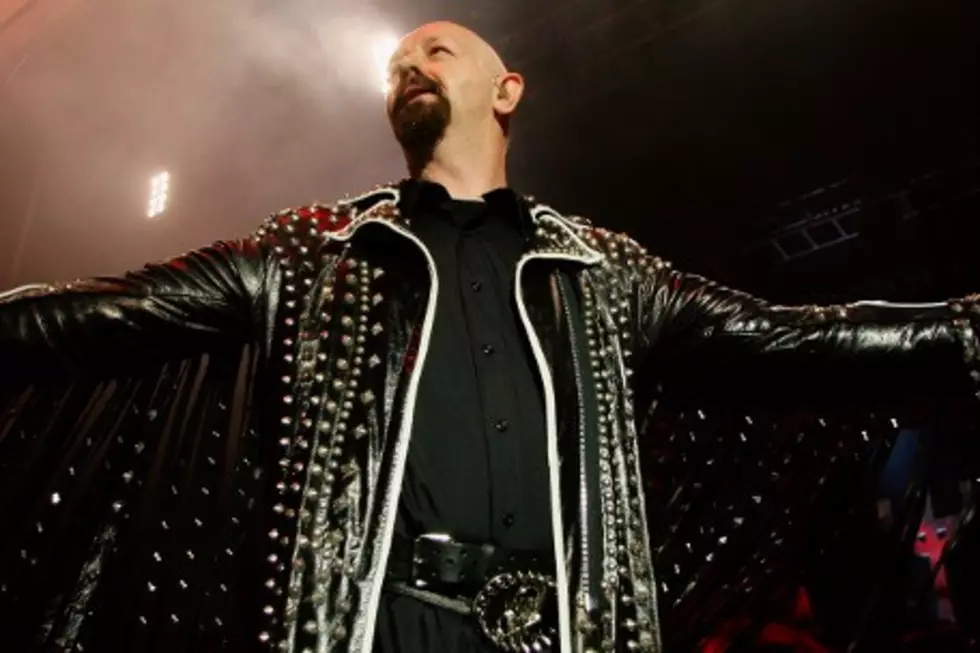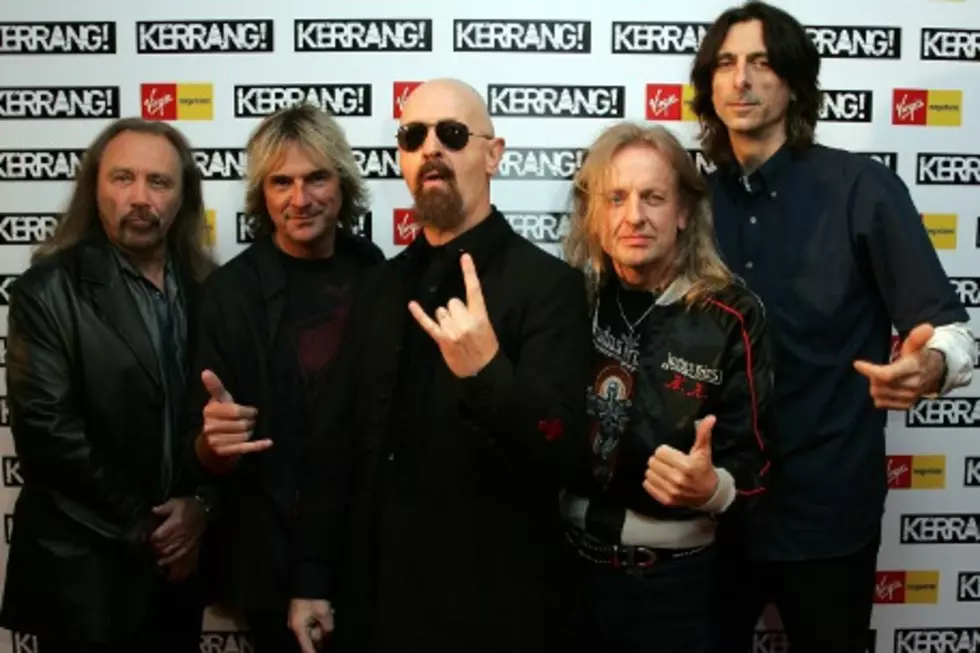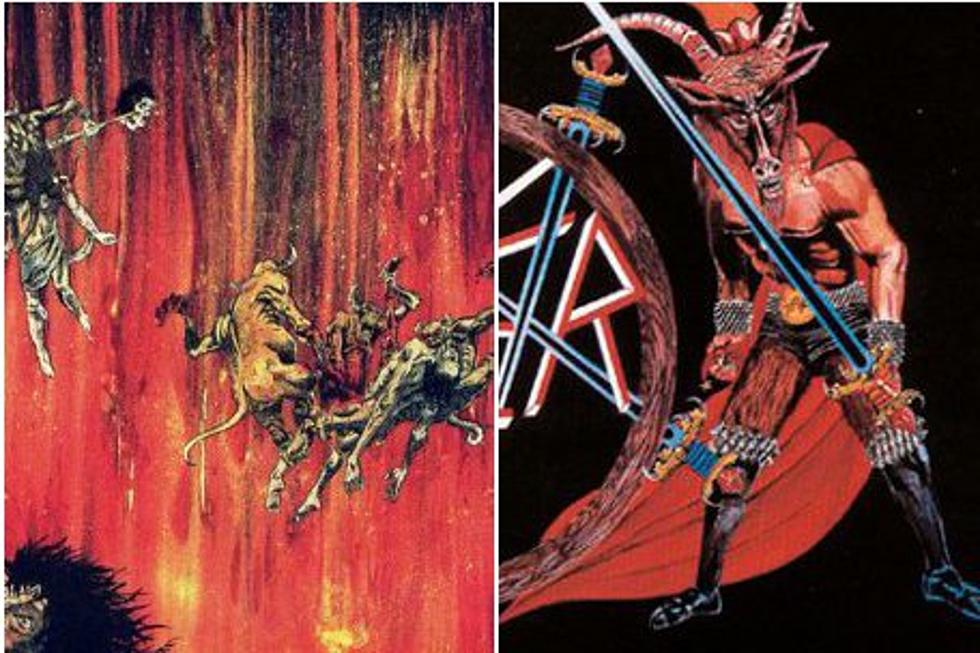Judas Priest, ‘British Steel: Legacy Edition’ 30th Anniversary — New Album
Judas Priest's now-classic album 'British Steel' was released in 1980, ushering in heavy metal's '80s heyday and defining the look and sound of the band itself. Last year, the quintet took 'British Steel' on the road, performing the album track by track in its entirety.
The 30th anniversary of the record is marked by a special 'British Steel: Legacy Edition,' released on Columbia Records May 11, which includes the remastered CD and a bonus DVD capturing the British metal giants in concert in August 2009 at the Seminole Hard Rock Arena in Hollywood, Fla. and a documentary, 'Making of British Steel,' complete with band interviews. Guitarist K.K. Downing, who founded Judas Priest with former bassist Ian Hill in Birmingham in 1970, spoke to Noisecreep from his home in Shropshire, England.
Is all this 'British Steel' activity making you nostalgic?
Yes, definitely. When somebody suggested we play the entire album, I wasn't too sure about it, to be honest. For lots of reasons. But when we did it, we were all very touched by the reception from the fans. I suppose a lot of them saw us the first time around and there they were with their offspring. It was a magical thing to do.
What were your reservations about performing the record?
My first thought was that when you do a record, and there's a couple of songs like on this one: 'Living After Midnight,' 'Breaking the Law' and 'Metal Gods' have always been in the set list. The other songs become what's known as sleepers. So to play the record in its entirety, I wasn't too sure how much those songs would mean to people. Now I know that's crazy because when people buy a record, they buy it to enjoy the whole thing. After we had a few shows under our belt, it proved to be something that was inconsequential really. People loved all of the album, and it was something very close to them.
So, the shows were accompanied by fist pumping all the way through for every song?
Yes. It was quite a relief.
When 'British Steel' was released, the heavy metal '80s scene had yet to unfurl and the genre was still underground.
Very much so. We'd been making records for a few years, and it was tough going because it was very much for the minority of people. Then we hit the '80s, and the more we got into the '80s it got more and more to be flavor of the month, which is fantastic really. I often refer to them as the golden '80s for rock and metal. Literally, every night wherever you lived, it seemed you'd go out and see great band in your hometown.
'Living After Midnight' and 'Breaking the Law' helped bring heavy metal into the mainstream.
It was a surprise to us that the songs were that successful. 'British Steel' as an album, the lyrics, the artwork and for the first time Judas Priest were uniformed out in a way. We were all, by the time we went on that tour, we were all in leather completely as a band. It consolidated the band in a way. We knew who we were, where we were going and what we wanted to do. Whereas before we were a little bit, musically we were kind of on the same wavelength, but not as much as after 'British Steel.'
Really, Priest has its roots in Britain's early '70s hard rock and the prog scene.
The first album came out in '73-'74, but we'd been a struggling band some years before that, trying to get a record deal, trucking up and down the motorways. We were kind of progressive rock in a way, but not like Genesis or Yes. We were a different version. We were a heavy rock band for a long time, until some journalist came up with the name heavy metal.
How did you come up with the title 'British Steel'?
I'm not really too sure. We were so engrossed in getting the record done, because we only had a limited time in the studio. I know Glen actually worked for British Steel, the industry, for a while. I think it may have been Ian our bass player who came up with the idea. Then the art director came up with the Wilkinson Sword blade, and it all came together. I guess it was a good bit of luck and one thing led to another.
More From Noisecreep
